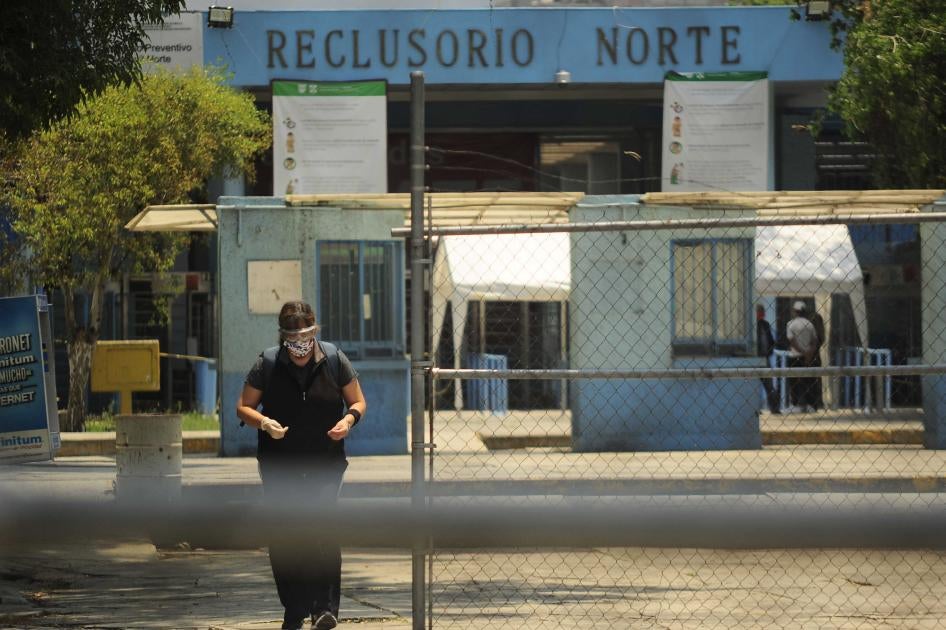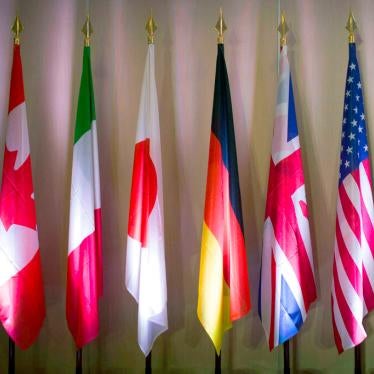Mexico’s prisons are a potential epicenter for rapid Covid-19 spread, both inside and outside of detention centers. The government is putting on a show of addressing the issue but isn’t taking meaningful steps to prevent an explosion of the virus behind bars. Uncontained outbreaks in Mexico’s prisons could severely sicken and kill large numbers of detainees and spread the virus to staff and the population at large.
President Andrés Manuel López Obrador says the new Amnesty Law will allow for releases of “sick people and older people. Senate Majority Leader Ricardo Monreal, from López Obrador’s Morena party, called the law “an act of humanism.” to “minimize the number of deaths caused by coronavirus.”
These claims are deeply misleading. The Amnesty law does little to prevent the spread of Covid-19 in Mexico’s unsanitary and overcrowded prisons. Instead state and federal governments and prosecutors should use the powers they already have under Mexican law to work with judges to reduce populations in Mexico’s prisons.
On April 20, Morena leadership called an emergency session of the Senate to push through this law, presented to Congress last September months before the novel coronavirus was first identified, and repackaged as a response to the current Covid-19 pandemic.
The new law does further important human rights goals, allowing the release of people charged with simple drug possession, which should not be criminalized, low-level drug and property offenses, “political” offenses, and in certain cases indigenous people. But it doesn’t decriminalize these offenses.
Also, by the government’s own estimates, just 2 to 3 percent of the nearly 200,000 people in Mexico’s federal prisons could be eligible to apply for a pardon under the law. And the law won’t help people in state prisons, 80 percent of the country’s prison population. Nor does it provide for the release of people with certain underlying health conditions that make them more vulnerable to the virus.
The releases could take months so the law won’t halt the immediate spread of Covid-19 in Mexico’s prisons, which had reported 150 confirmed cases and 32 deaths as of May 24. Experts warn that the real number of cases is likely much higher, due to limited testing.
According to a 2019 assessment by the National Human Rights Commission, an official body, a third of Mexico’s federal and state prisons are overcrowded, a third are deficient in healthcare, and two-thirds are deficient in hygiene. The most recent survey of prisoners conducted by Mexico’s statistical agency INEGI indicates that nearly half of all prisoners share their cell with more than five people, 30 percent don’t have access to potable water in their cells, and just eight percent are provided with toiletries by prison authorities. Under these conditions, it is impossible to comply with social distancing or hygiene recommendations to prevent the spread of Covid-19 inside prisons.
Mexican law allows state and federal governments to ask judges to authorize the conditional or early release of detainees who meet certain requirements, including that their release would not pose a risk to society. Detained people or prosecutors can also ask judges review pretrial detention.
Some state governments, such as Mexico State and Mexico City have already used these mechanisms to release more than 2,000 people, though more is needed. Some people have raised concerns over the prospect of releasing “dangerous criminals.” But 35 percent of the people being held in Mexico’s prisons have not been convicted of any crime. And many of the people given conditional release in Mexico State are being monitored with ankle bracelets.
Excessive use of pretrial detention has been frequently cited as one of the main reasons for the chronic overcrowding of Mexico’s prisons. The Morena-controlled legislature worsened the problem in 2019, when it expanded the list of crimes requiring automatic pre-trial detention. That violates the presumption of innocence, a fundamental due process guarantee provided for in Mexican and international human rights law.
Authorities should prioritize asking judges to release people in pretrial detention accused of non-violent crimes and who would not pose a risk to society if released. They should also give priority to those at increased risk from Covid-19, such as older people, pregnant adults and adolescents, people with certain disabilities, and to children and caregivers who have been accused of non-violent crimes.
Governments have a heightened duty of care for the people in their custody, and Mexico’s authorities, at all levels, need to move expeditiously to protect the health and right to life of the people in their prisons.
More broadly, Mexico’s federal and state governments should end the systemic abuses that contribute to prison overcrowding. The first step to doing so, which both Congress and state legislatures should take sooner rather than later, is ending the use of automatic pretrial detention. States legislatures should also pass their own amnesty laws, which would benefit many more people.
With Covid-19 already spreading in Mexico’s prisons, it is urgent for state and federal governments to use tools already at their disposal to pursue substantial releases and reduce overcrowding. If López Obrador does not mobilize his administration and state governors to act quickly, the spread of Covid-19 in Mexico’s prisons could lead to disastrous consequences, both for detained people and for society at large.








